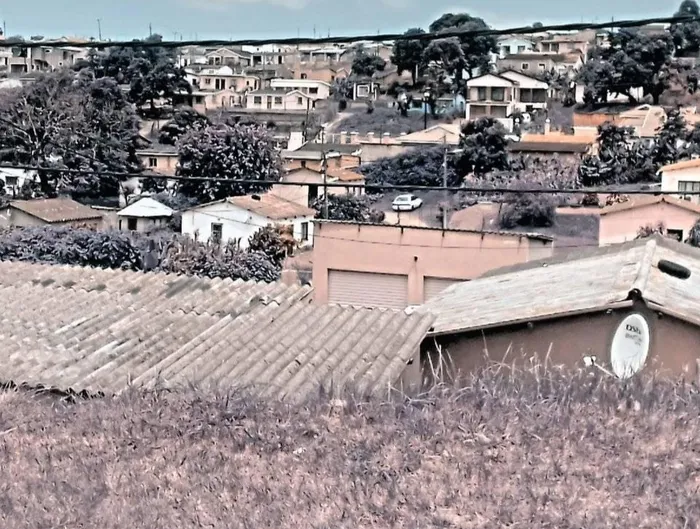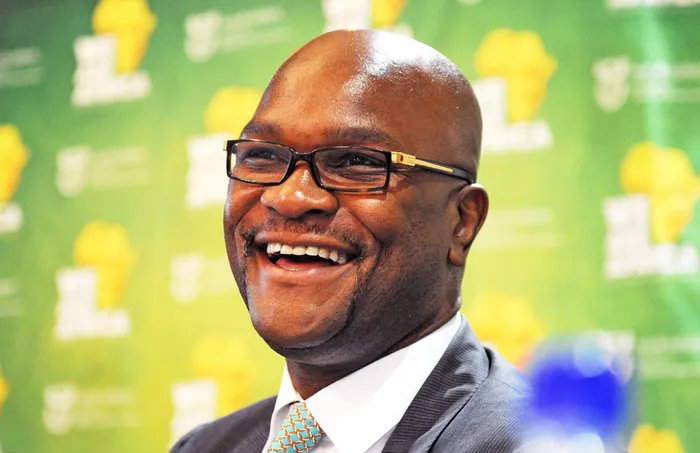
THE tiny Klaarwater township where South Africa's ambassador to France Nathi Mthethwa grew up, that became a haven for political activists who were fleeing from the internecine violence in the 1980s.
Image: File

SOUTH Africa's ambassador to France, Nathi Mthethwa, sharpened his teeth at activism in Klaarwater, a tiny township west of Durba, where he grew up and ascended the political ladder to to the public office that spanned various administrations only to for his life to expire tragically on foreign soil.
Image: Simone Kley
The sudden death of South Africa’s ambassador to France, Nkosinathi Emmanuel "Nathi” Mthethwa, sent shockwaves through political and diplomatic circles.
At 58, his career embodied both the triumphs and the contradictions of post-apartheid South Africa: a struggle activist who rose from township structures to the Cabinet, but whose years in office were never far from controversy.
Roots in resistance
Mthethwa grew up in Klaarwater, Mariannhill, west of Durban but called the village of kwesaKaMthethwa, in KwaMbonambi, north of KwaZulu-Natal home. The tiny Durban township, became a haven for anti-apartheid activists fleeing political violence that ravaged much of the province in the 1980s. Known by his peers as “Jazz”, Mthethwa was central in community activism.
Klaarwater itself was marked by hardship and neglect. The community resisted incorporation into the KwaZulu Government, a defiance that drew the wrath of the apartheid state's Natal Provincial Administration, through its Borough of Pinetown.
Development was deliberately withheld, electricity was restricted largely to streetlights, and the bucket toilet system remained in place until the mid-1980s, when ablution blocks were finally built alongside the two-bedroom homes popularly known as “matchbox” houses that defined township life. It was against this backdrop that Mthethwa cut his political teeth.
He joined the United Democratic Front-aligned Klaarwater Residents Association (Klara) part of a network of rent boycott organisations in Durban, from Chesterville, Lamontville and Hambanathi, north of the city, that defied apartheid’s homeland policy. He quickly rose through the ranks of youth structures, serving in the Klaarwater Youth Organisation, the South African Youth Congress, and later as the first secretary of the ANC branch in Klaarwater after its unbanning.
Education didn't take a backseat as he enrolled for a degree in community development at the University of Natal and later obtained certificates from Rhodes University and the University of Johannesburg.
Rise in the ANC
From youth politics, Mthethwa advanced into the ANC Youth League (ANCYL), where he became regional secretary for Southern Natal, working alongside then-chairperson, the ANC veteran, Mzwandile Mhlanzi, a fellow Klaarwater resident, who lived in the same Ngcobo Street with Mthethwa. His home would later be demolished, allegedly at his instruction and remains an illegal makeshift dumping site.
His stature grew nationally, leading to a seat on the ANC Youth League’s executive and eventually on the ANC’s National Working Committee, one of the movement’s highest decision-making bodies between conferences.
By the early 2000s, he was firmly embedded in national politics. In 2004, he chaired Parliament’s Portfolio Committee on Minerals and Energy, before becoming the ANC’s Chief Whip. His reputation as a disciplined party loyalist earned him a place in Cabinet.In the national spotlightIn 2008, President Kgalema Motlanthe appointed him Minister of Safety and Security. Under President Jacob Zuma, the portfolio was renamed Police, and Mthethwa remained at the helm. His tenure was defined by some of the most jarring moments in post-apartheid history.
Chief among them was the Marikana massacre of August 16, 2012, when police shot dead 34 striking mineworkers at Lonmin’s platinum mine. The killings drew global condemnation and became a turning point in the debate about state violence, political accountability and workers’ rights.
The Farlam Commission of Inquiry later absolved Mthethwa, then-deputy president Cyril Ramaphosa, and Mineral Resources Minister Susan Shabangu of direct responsibility, but the tragedy cast a long shadow over his political career.
He was also embroiled in the Nkandla scandal, when Public Protector Thuli Madonsela criticised his role in designating Jacob Zuma’s homestead a “national key point,” a move widely seen as enabling state-funded security upgrades at the president’s private residence.
Later, the Zondo Commission on State Capture brought further allegations. It heard that R196,000 from the Crime Intelligence slush fund had been used to build a wall at his KwaMbonambi home, and that he had driven a state-purchased Mercedes-Benz SUV. Mthethwa denied wrongdoing, dismissing the car claim with the quip that the brand was “not his favourite.”
Later years in government
In 2014, Mthethwa was shifted to the Ministry of Arts and Culture. When the portfolio was expanded in 2019 to Sport, Arts and Culture, he continued in the role. His tenure was marked by both cultural initiatives and controversy.One of the most contentious was the proposed R22 million “monumental flag” project, which envisaged a 100-metre-high flagpole as a symbol of unity. Public backlash forced its cancellation, but not before almost R2 million had been spent on feasibility studies. However, the Auditor-General later found the expenditure above board.
By 2022, his influence within the ANC had waned, and didn't make it to National Executive Committee in December, and in March 2023, President Ramaphosa dropped him from Cabinet. Months later, however, he was appointed ambassador to France, extending his public service into the diplomatic arena.
On the cusp of a deployment to the diplomatic corps, Mthethwa continued to keep in touch with the place that initiated him into political consciousness. He ensured, along with the ward councillor and members of the ward committee that Mariannhill's oldest centenarian, Sarah Ngcobo, 107, received a decent house, for the honour. Ngcobo, who was from Klaarwater passed away in April this year.
Allegations resurface
Even in the City of Lights - Paris, his past returned to haunt him. During testimony at the ongoing Madlanga Commission, KwaZulu-Natal police commissioner Lt-Gen Nhlanhla Mkhwanazi accused Mthethwa of political interference and halting the arrest of former Crime Intelligence boss Richard Mdluli.
A sudden and shocking end
Mthethwa’s death has stunned both colleagues and critics. On Sunday, after failing to attend an official event, his wife alerted authorities following a distressed text message from his cellphone.
According to French authorities, he fell from the 22nd floor of the Hyatt Regency Hotel. A pair of scissors is believed to have been used to force open the window. He had booked the hotel room ten days before his demise and later rescheduled.
On Friday, Paris police handed his personal belongings, a hat, coat, and a remote control, to his wife in the midst of preparations to repatriate his remains. Mthethwa's brother, Khulekani, appealed for sensitivity, criticising the circulation of “unfounded allegations” on social media during the family’s grief.
Legacy
Mthethwa’s legacy, like much of his career remains complex, a blend of struggle credentials, senior government service, enduring controversies, and a dramatic final chapter on foreign soil.
SUNDAY TRIBUNE